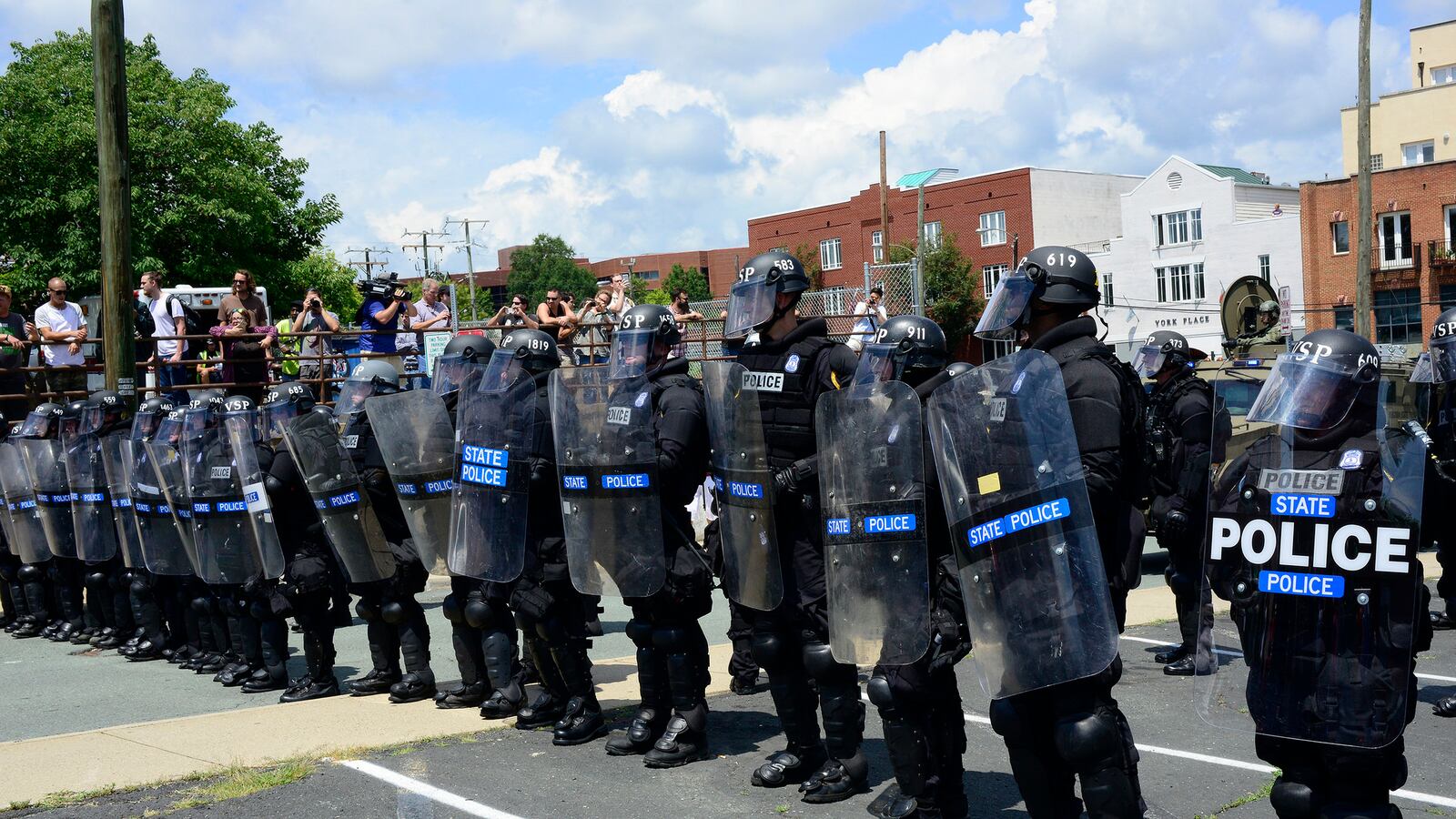Among the many consequences of this weekend’s events in Charlottesville: teachers are wondering how the violent displays of racism will affect their students.
Research suggests they may be right to worry. A number of studies have found that violent and traumatic events outside of school do real damage to student learning — particularly among students who are already struggling.
Perhaps the most relevant study examined the impacts of the 2014 police shooting of Michael Brown, an unarmed black teenager, and the protests and clashes with police that followed in Ferguson, Missouri.
Researchers Seth Gershenson of American University and Michael Hayes of Rutgers examined the districts in and around Ferguson, and found that both student achievement and attendance declined relative to other schools in the St. Louis metro area.
“The most obvious [explanation] is the direct effects of stress and trauma that’s taking up mental bandwidth on the part of students, teachers, and parents that would normally go to school,” said Gershenson.
The effects were fairly large — chronic absenteeism increased by three percentage points, and the number of students scoring in the lowest performance category in math doubled. The impacts were largest in elementary schools and for students who were already low-achieving.
Gershenson and Hayes also found smaller but significant negative effects in majority-black schools throughout the St. Louis area, not just in and near Ferguson. This suggests that the results are not simply because of students’ direct interaction with the events, and may be tied to stress from constant news coverage and discussion.
It’s even possible that the effects would be felt throughout the entire state or country, as the events received consistent national attention.
“I suspect that one could show that maybe all students, but especially black students, across the country were affected in some way by the constant stream of news not just about Ferguson but about … all the other police shootings and related news,” Gershenson said.
Another interpretation of the results is less negative. Perhaps teachers “reallocate[d] instructional time away from math and reading skills and towards non-tested topics such as race, inequality, and the criminal justice system,” the study posits.
However, since the results are concentrated in earlier grades, this explanation is less likely.
Of course, it’s impossible to know how the events in Virginia will affect students there and elsewhere just yet. But past studies hint at potentially lasting consequences for students’ academic trajectories.
Previous research from Gershenson showed that the Beltway-sniper shootings in fall 2002 led to dips in student learning in schools in the area; other research has found that school shootings and violent crime on a student’s block cause declines in achievement.
“There are negative effects across the board of such a horrific, stressful incident,” Gershenson said. “This is just another negative effect that’s quantifiable.”


